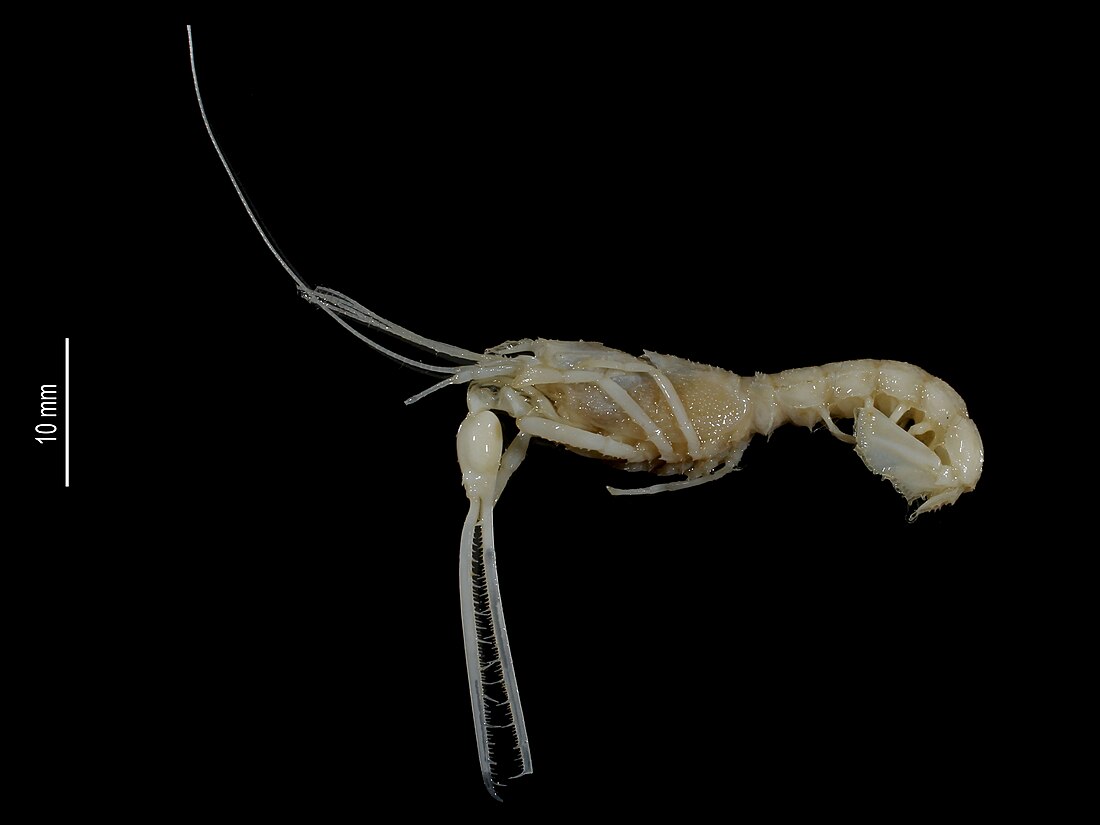Thaumastochelidae
Family of lobsters From Wikipedia, the free encyclopedia
The family Thaumastochelidae contains five known species of deep-sea lobsters, three in the genus Thaumastocheles, and two in the genus Thaumastochelopsis. The fifth species was discovered in the ten–year Census of Marine Life.[1][2] These creatures are distinguished from other clawed lobsters by their blindness (an adaptation to deep-sea life), and by their single elongated, spiny chela.[3]
| Thaumastochelidae | |
|---|---|
 | |
| Thaumastocheles massonktenos | |
| Scientific classification | |
| Domain: | Eukaryota |
| Kingdom: | Animalia |
| Phylum: | Arthropoda |
| Class: | Malacostraca |
| Order: | Decapoda |
| Suborder: | Pleocyemata |
| Superfamily: | Nephropoidea |
| Family: | Thaumastochelidae Bate, 1888 |
| Genera | |
|
Thaumastocheles Wood-Mason, 1874 | |
The family Thaumastochelidae is now more usually subsumed into the lobster family Nephropidae.[4]
Species
The five species are as follows:
- Thaumastocheles
- Thaumastocheles dochmiodon Chan & de Saint Laurent, 1999 is found in the Timor Sea.
- Thaumastocheles japonicus Calman, 1913, the "Pacific pincer lobster", is endemic to the Sea of Japan.

- Thaumastocheles zaleucus Thomson, 1873, the "Atlantic pincer lobster" or "Atlantic deep-sea lobster", is endemic to the Caribbean region.

- Thaumastochelopsis
- Thaumastochelopsis brucei Ahyong, Chu & Chan, 2007 lives in the Coral Sea.
- Thaumastochelopsis wardi Bruce, 1988, the "Australian pincer lobster", lives in the Coral Sea.
References
Wikiwand - on
Seamless Wikipedia browsing. On steroids.
